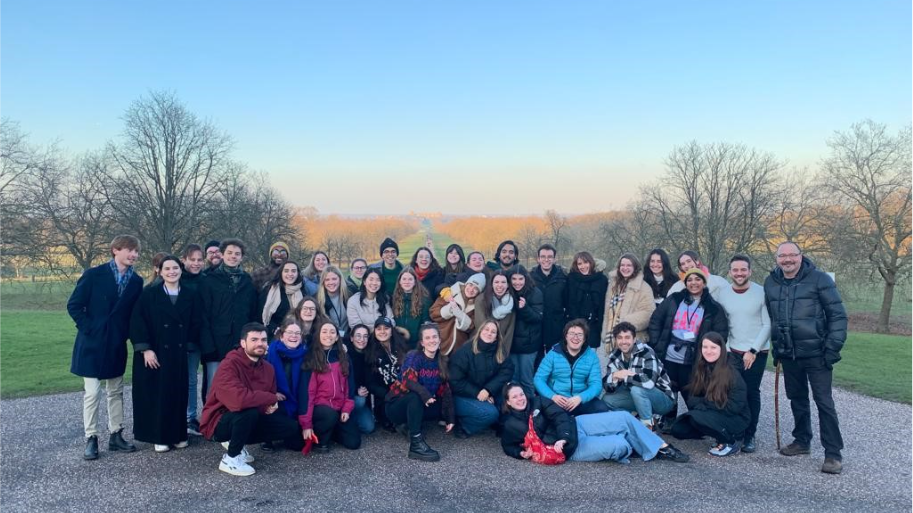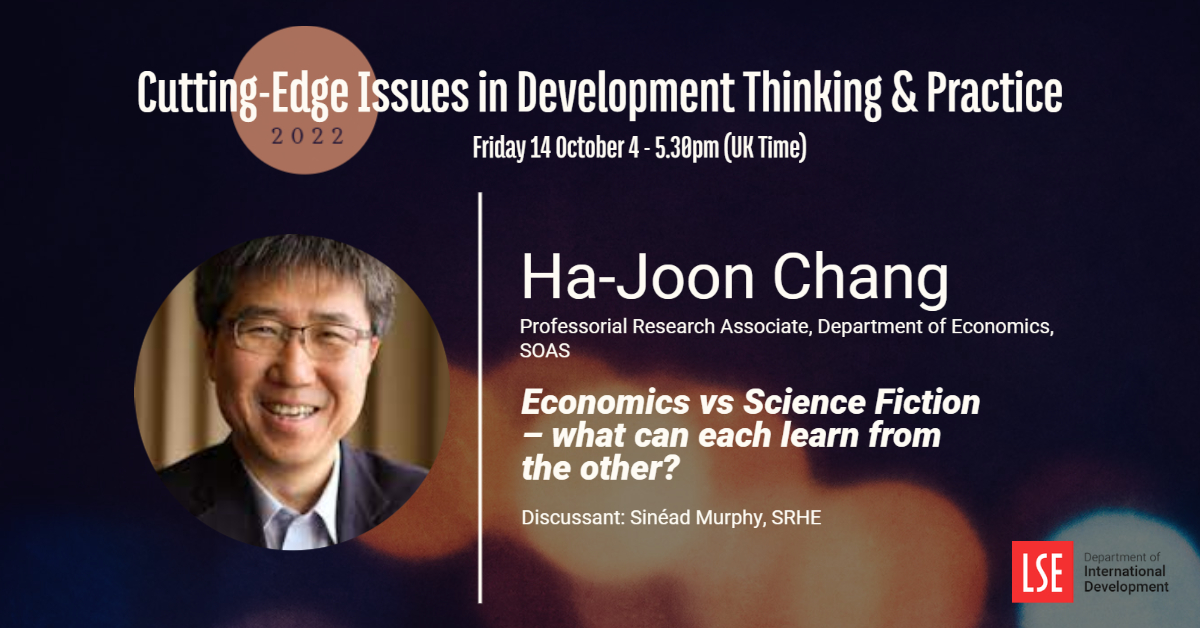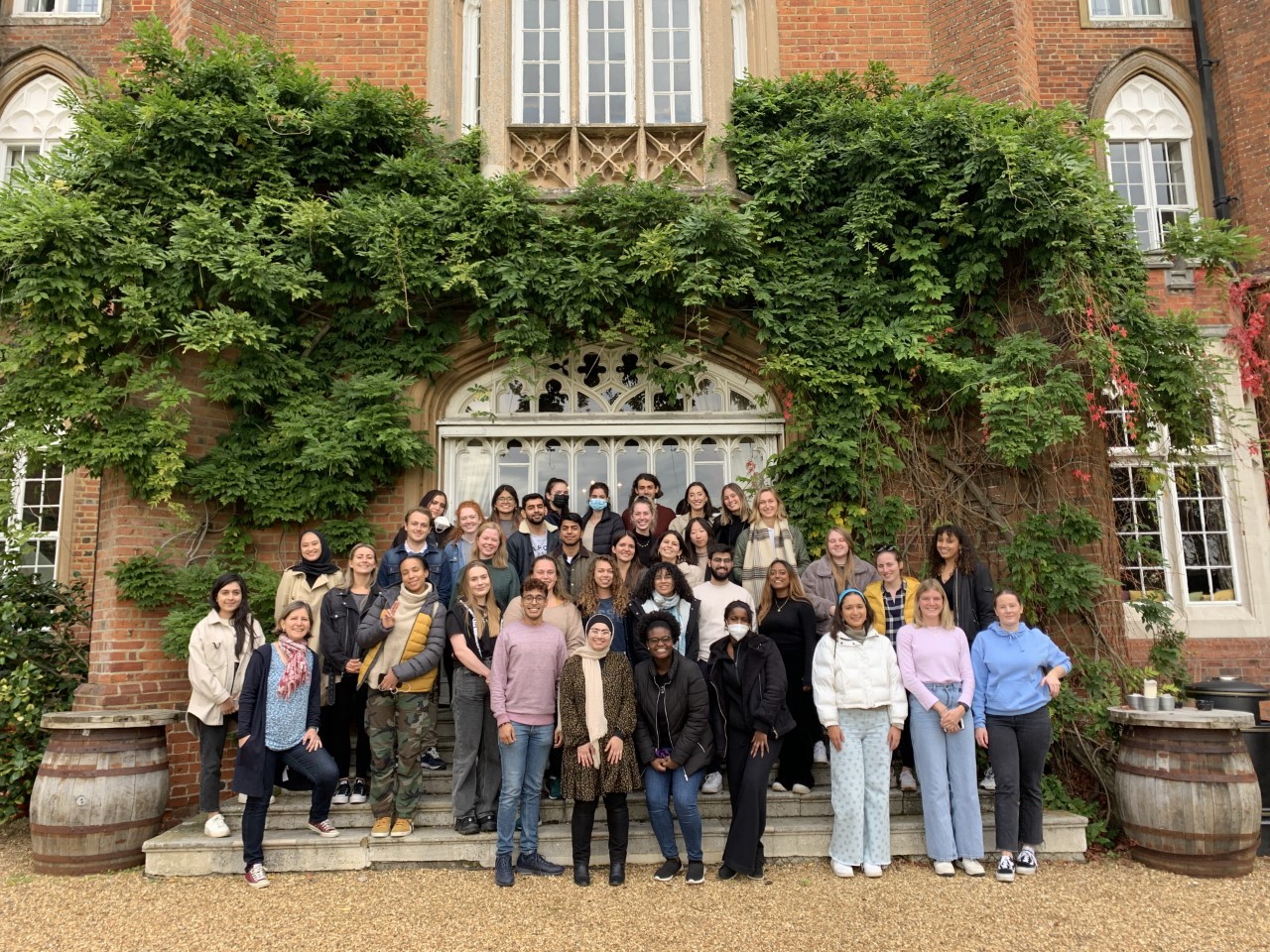The Copenhagen Democracy Summit (CDS) aims to become the world’s leading “megaphone” for the cause of democracy. MSc International Development and Humanitarian Emergencies candidate, Yussef Nuñez, shares his experience as part of the Center for International Private Enterprise (CIPE)’s delegation at the CDS where he consulted on digital democracy, youth participation, and the private sector (SMEs) role in promoting democratic values.
Democracy, and the world, need change and both youth and innovation are part of the solution. Last week I participated in the 2023’s edition of the Copenhagen Democracy Summit as part of the Center for International Private Enterprise (CIPE)’s delegation. The focus of the CDS 2023’s discussion reaffirmed democracies’ support for Ukraine and Taiwan, global chessboard movements and the use of emerging technologies in international relations.
The summit brought presidents and prime ministers, defenders of freedoms and democracy, academia, civil society, and private initiative together. For two days we discussed the importance of ensuring Ukraine’s total victory and the implications that Russia’s victory could have on the world order. But why do Western democracies fervently support Ukraine, and why shouldn’t some borders in Eastern Europe be surrendered? The struggle is not one between states but between democracy and authoritarianism. Victory or defeat in Ukraine will have a similar fallout in Taiwan, Belarus, Venezuela, and Afghanistan.
The message is simple. The West is determined to draw a line against authoritarianism whilst reflecting on the negative impact the global North has had as a destabilising agent in the Middle East, Africa, Latin America, and Southeast Asia. It should be noted that the Western agenda is clear, and the absence of panels focusing on Latin America and Africa reflects a lack of interest in the regions at the expense of the former’s populist wave and China’s rapprochement with South America and Sub-Saharan Africa. As Bahrain’s human rights activist, Maryam Al-Khawaja rightfully stated, “Either the fight for democracy is everywhere or it does not happen at all”.
The summit concluded that two components are needed in the fight for freedom. The responsible use of emerging technologies, such as social media and artificial intelligence (AI), and youth. First, world leaders are questioning who is leading the digital race and innovation in AI. Nathan Law and Jameel Jaffer debated whether TikTok should be banned because of ByteDance’s data collection, propagation of (mis)information and Chinese propaganda; ignoring the fact that Facebook has been a platform that has fuelled fake news and propaganda in the US and UK.
Social media is a forum that amplifies dialogue, transparency, and accountability in a democratic way. Heads of state and citizens alike can exchange views as digital citizens. How much, if at all, they should be regulated remains a relevant debate. Similarly, AI was discussed as an amplifier of its users’ capabilities, at the expense of the caution recommended by more advanced engineering and data science. While the speakers were certain and confident that the AI race is being won by the democratic world, Palantir’s CEO, Alex Karp, asserted that the West must look back at what is happening within their societies without stopping the process of innovation. Otherwise, China will soon overtake them as in the 5G race. Social media regulation, monitoring and legislation are the present and AI is the (near) future.
Finally, youth is not the future of democracy, but the present. Today, young people represent 16% of the world’s population and that is why activism, digital mobilisation, the responsible use of social media and the dissemination of interesting proposals towards young people are needed. To this end, it was inspiring to see the entrepreneurial and tech-savvy projects of youth colleagues that use technology and digitalisation for the development and strengthening of fragile democracies. Their actions embody the values shared by activist Naheed Farid, “Democracy is a symphony and our voices are the instruments”. And you, what are you waiting for to defend democracy?
The views expressed in this post are those of the author and do not reflect those of the International Development LSE blog or the London School of Economics and Political Science.
Image credit: Ritika Singh, CIPE via Twitter.





